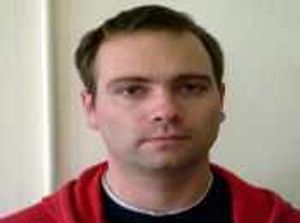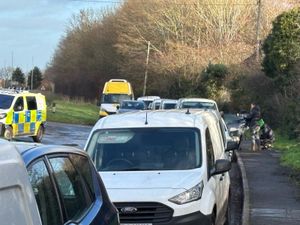Afghan blast victim 'unlawfully killed'
A Shropshire-based soldier on foot patrol in Afghanistan was unlawfully killed in a blast from a bomb hidden in the wall of a concrete compound, a coroner has ruled. A Shropshire-based soldier on foot patrol in Afghanistan was unlawfully killed in a blast from a bomb hidden in the wall of a concrete compound, a coroner has ruled. Ranger Justin Cupples, 29, of 1st Battalion The Royal Irish Regiment, was part of a mission to clear an area of Improvised Explosive Devices near an operating base in Sangin, Helmand Province, on September 4, 2008. Described by his commanding officer as a "bright, intelligent soldier", he was killed weeks before he was due to return home from Afghanistan. At the inquest on Rgr Cupples, who lived in Market Drayton, in Shropshire, Coroner David Ridley yesterday recorded a verdict of unlawful killing in active service.

Ranger Justin Cupples, 29, of 1st Battalion The Royal Irish Regiment, was part of a mission to clear an area of Improvised Explosive Devices near an operating base in Sangin, Helmand Province, on September 4, 2008.
Described by his commanding officer as a "bright, intelligent soldier", he was killed weeks before he was due to return home from Afghanistan.
At the inquest on Rgr Cupples, who lived in Market Drayton, in Shropshire, Coroner David Ridley yesterday recorded a verdict of unlawful killing in active service.
The inquest heard that the group Rgr Cupples was part of had already found one IED and successfully removed it.
After clearing the area over a period of six hours the soldiers, wearing night-vision goggles, decided to go back along the same route to their base, the inquest was told.
But as Rgr Cupples's section turned a bend the command wire of an IED was activated. Rgr Cupples was fatally wounded.
Rgr Cupples was stretchered back to base where he was airlifted to Camp Bastion and pronounced dead.
The inquest, in Trowbridge, heard from Rgr Cupples's patrol colleagues who said that they only checked walls with IED detection equipment if they saw something that concerned them as they walked along.
A US bomb disposal technician, who has not been identified at the request of the US military, said the device was tripped by a command wire, a hair thin wire almost impossible to see.
Two IEDs detonated, triggered by Rgr Cupples.
The inquest sat in private to hear evidence from experts on the capabilities of IED detector equipment.
At the time of Rgr Cupples's death soldiers carrying out IED patrols were not trained to sweep walls with detectors unless there were suspicions, the inquest was told.
But Warrant Officer Christopher Fuller said training now includes scanning walls.
A spokesman for the Ministry of Defence said after the inquest: "Our thoughts and sympathies remain with the family and friends of Rgr Justin Cupples at this difficult time.
"We have noted the coroner's comments and, with the Royal Military Police and Ministry of Defence's own investigations, will learn lessons from this tragic incident."
By Tom Johannsen




